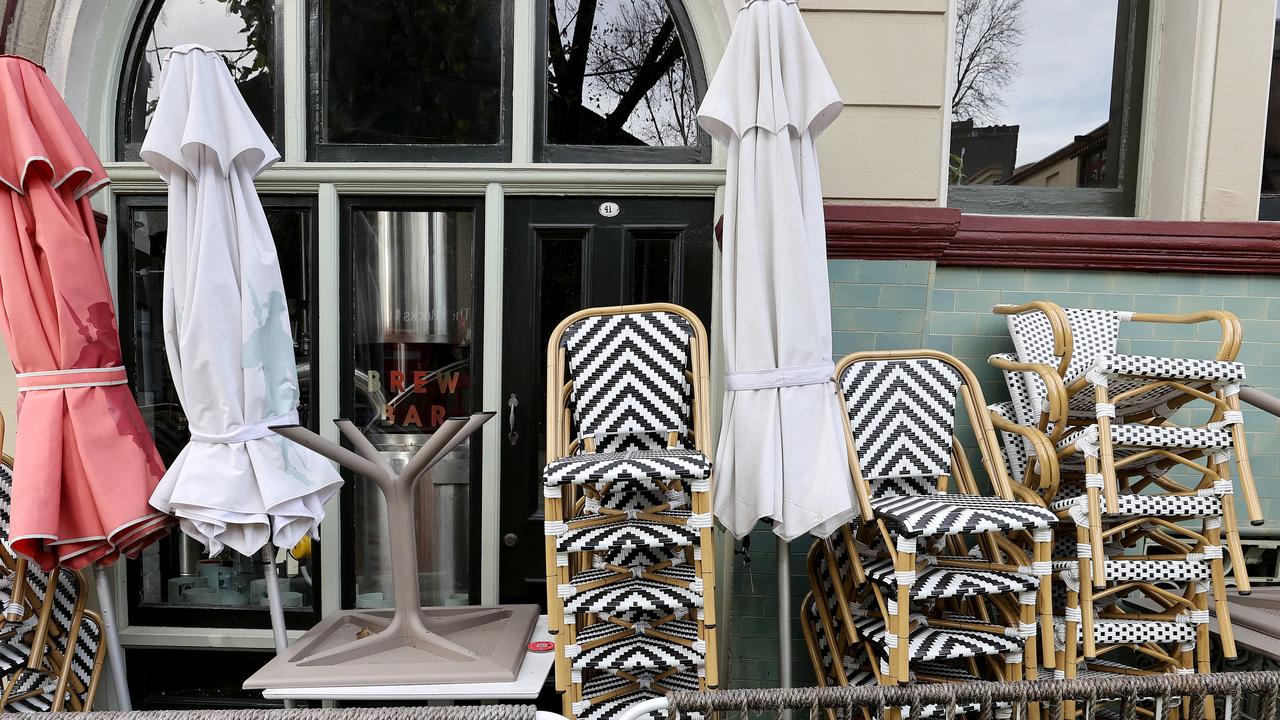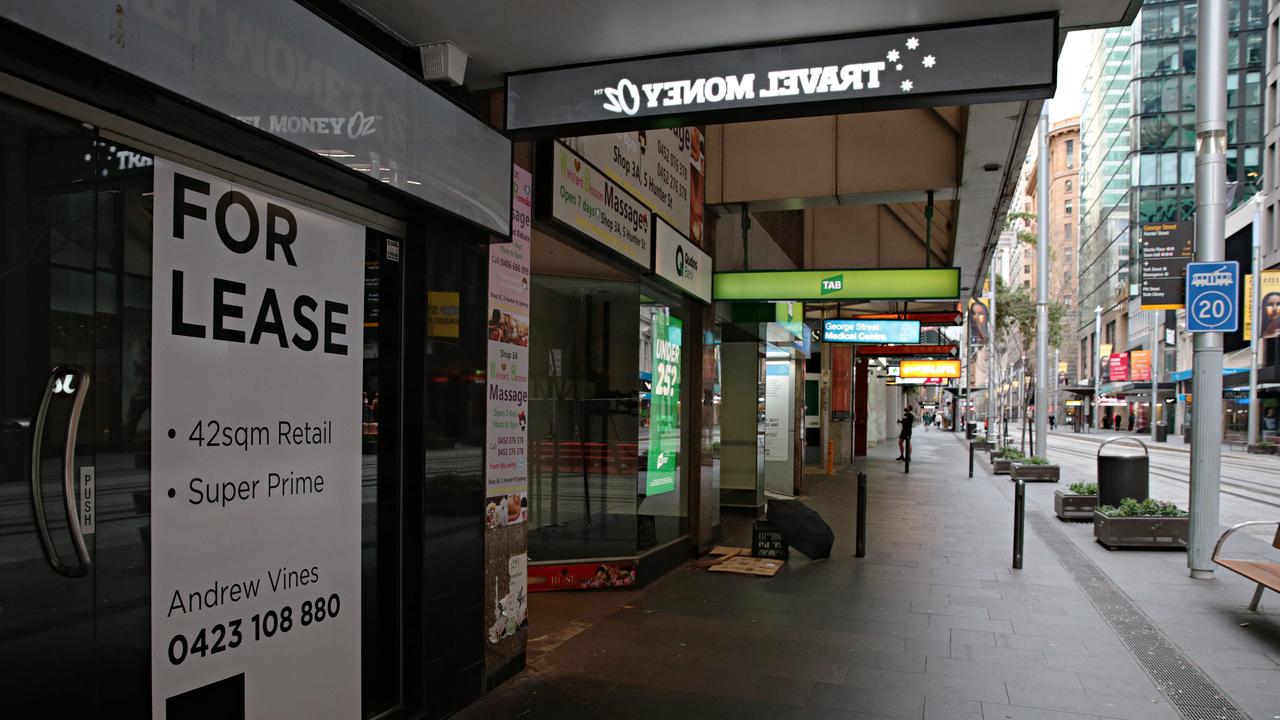Why click and collect could save small businesses during covid
With more than $8 billion in retail trade at risk and concerns around extended lockdowns with the outbreak, one change could turn things around.
More financial support is needed to help small businesses offer click and collect and delivery services to help them survive lockdowns, according to a leading e-commerce coach.
Kelly Slessor, who was worked with big players like Westfield and Woolworths and more than 1000 small businesses in the last year, said owners are hurting due to a lack of online presence.
Her phone has been blowing up with small businesses looking for help, while others have shared the hard news that they are shutting down.
Her agency surveyed 100 retailers and found only 38 per cent had click and collect services or local delivery, meaning 62 per cent had difficulty trading through a lockdown.
She said many small businesses just don’t have the technology set up to offer these types of services.
“If I want some doughnuts delivered or to click and collect a pair of shoes in store, a lot of websites aren’t set up for that.
“Retailers aren’t digital, they didn’t set up businesses to be digital experts and unfortunately the way government support is set up it doesn’t allow them to tap into something that helps them,” she told news.com.au.
“The government needs to help small businesses get digitised. There is a massive failure in the subsidies and grants, as they can chuck money and resources at employees and that’s a great thing, but they don’t fix fundamental issues so when retailers or restaurants go into lockdown there is no money coming in the door and they can’t keep the business going.”
RELATED: ‘In the dark’: Calls for scrutiny on payments

She added many Aussies want to support local but finding businesses online is a “minefield” meaning many restaurants, shops and services are missing out, with people resorting to ordering from major players as it’s easier.
“We go into lockdown and everyone panics and then we come back out of lockdown and everyone goes back to business as usual, but unfortunately I‘ve had three or four calls from businesses that have either shut their doors or about to shut their doors, including one from a gym who could have made a switch to online fitness,” she said.
“But small businesses can’t be dynamic and don’t have the skillsets internally to be able to do it and what happens when they try and go out and find the skills, they get taken advantage of by a lot of agencies and spend a lot of money but don’t get the results they were looking for.”
She added that a lot of delivery companies charge such a high premiums that it doesn’t work for small businesses, who need a cash injection to tap into local networks.
Wes Lambert, CEO of the Restaurant and Catering Association, agreed that small businesses are the most vulnerable during lockdown, with more than 93 per cent of business in the food service industry earning less than $38,500 a week in revenue.
“Many are not able to pivot to takeaway and delivery, especially those that are in the CBD and they are worried about whether they will survive this latest lockdown,” he told news.com.au
“There are myriad reasons they can’t do takeaway and delivery. There are cafes in the bottom of high rise buildings that are missing out on footfall and some did not offer takeaway and delivery before lockdown and certainly would find it difficult to pivot into that revenue channel in lockdown.”
RELATED: Worst thing about buy now, pay later dumped

Paul Zahra, CEO Australian Retailers Association, agreed foot traffic had dropped to zero in the CBD as some businesses faced insolvency.
“While some businesses can stay open through the current restrictions, the reality is people are not going to the shops in their usual numbers and many businesses have decided it’s not worth the trouble of opening their doors at all,” he noted
Smaller businesses such as coffee shops, drycleaners and florists are particularly hurting, he added.
Billions lost in retail
More than $8 billion worth of retail trade is now at risk nationally with the Covid lockdown in Victoria extended for another seven days, along with South Australia’s week long shutdown, according to the Australian Retailers Association (ARA).
There is $250 million alone worth of retail trade in South Australia at risk due to the new restrictions that will be in place until Friday, it added.
With South Australia the latest state trying to curb an outbreak that’s 68 days of lockdowns so far this year, added Mr Zahra.
“The financial pain continues to mount for small businesses who were already struggling before these latest outbreaks. The hopes for survival for many are quickly fading without adequate support measures in place,” he said.
“With the Delta variant becoming incredibly difficult to contain, it’s clear that lockdowns are going to be an ongoing feature for the rest of this year when it comes to managing new outbreaks in the community.
“With that being the case, it’s clear we need the return of an effective support scheme like JobKeeper to ensure businesses can stay afloat and connected to their employees.”
Lockdowns in Victoria and Greater Sydney have contributed to a 1.8 per cent fall in retail sales in June compared to the previous month, according to preliminary figures released on Wednesday by the Australian Bureau of Statistics.

A national approach to lockdowns
Whilst the existing federal Covid disaster payments are certainly welcomed, they fall short of a liveable income and the arrangements that were in place under the first phase of JobKeeper, Mr Zahra added.
“The ARA is repeating its calls for a nationally consistent approach to Covid lockdowns and restrictions,” he said.
“There is still no national definition on what is included in ‘essential’ retail. It differs from state to state and is an absolute nightmare for businesses with a national footprint whose stores are affected in different ways depending on what city they’re in.”
Mr Zahra echoed calls for speeding up Australia’s Covid vaccination program too.
“The retail community stands ready to support this effort in any way it can. Vaccines are the only way we’ll see an end to these sorts of lockdowns and restrictions that are so damaging to businesses and livelihoods,” he commented.
Professional accounting body, CPA Australia, has also called for a post-lockdown business support strategy from the federal, state and territory governments.

CPA Australia CEO Andrew Hunter said the impact on businesses doesn’t stop the moment a government calls time on a lockdown.
“If support is withdrawn immediately, many businesses may experience a damaging hard landing,” he said.
“By tapering business support for a couple of weeks post-lockdown, the government can soften the negative effects of withdrawing support.”
It has proposed tapered support for small and medium businesses with eligibility based on decline in turnover, deferral of debt collection from places like the ATO, consumer incentives, such as dining, travel and accommodation vouchers and financial assistance for businesses to seek professional advice.
But Ms Slessor said while dine and discover vouchers are a great initiative, they are extremely complex for retailers to process.
“It has to be done manually in store, which is not a solution considering stay at home orders, and a retailer tested some manually online yesterday after 15 codes were received – three worked, two were already used and 10 were invalid,” she noted.
“The potential to small business’s is huge but its almost impossible to activate them.”
She said people could support local businesses by buying vouchers, using the ‘near me' search function on Google and providing reviews to increase retailers online visibility.
Ms Slessor is running a free digital clinic on Friday 23 July for retailers, restaurants and service providers to ask questions around setting up click and collect and local delivery.




